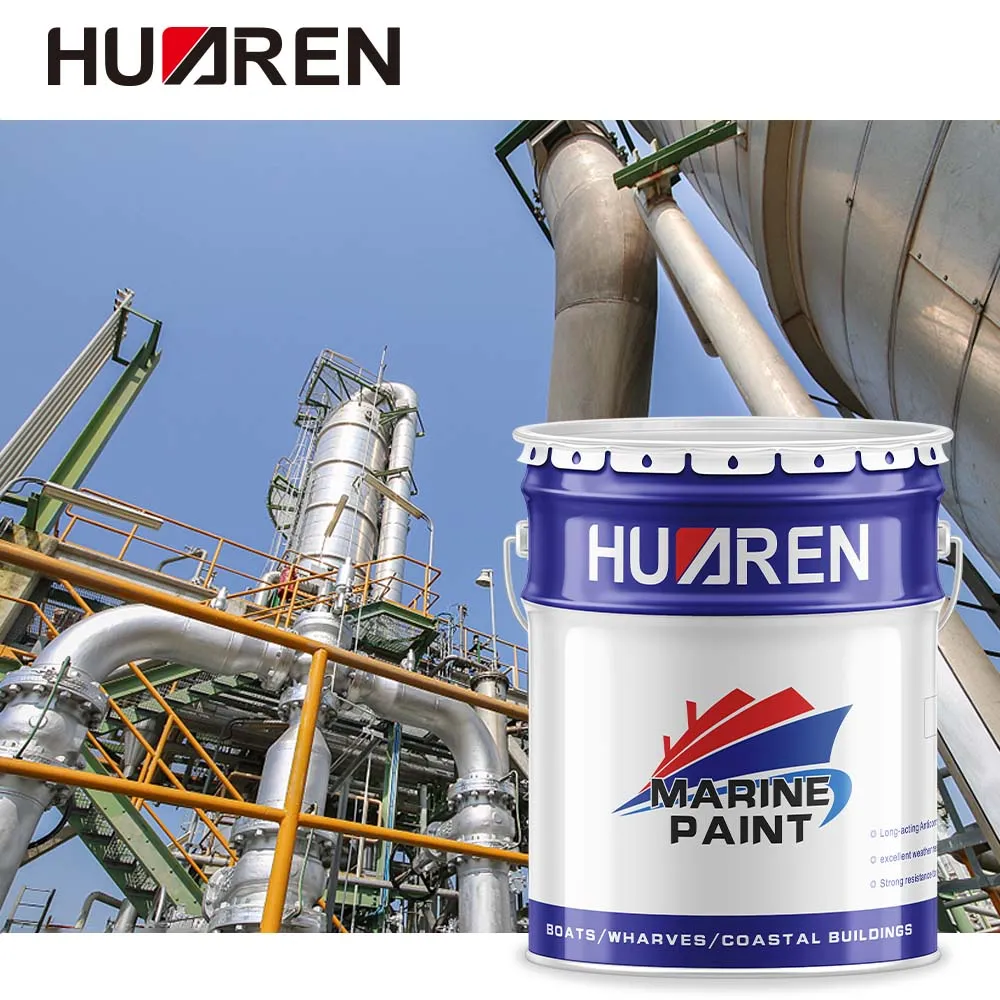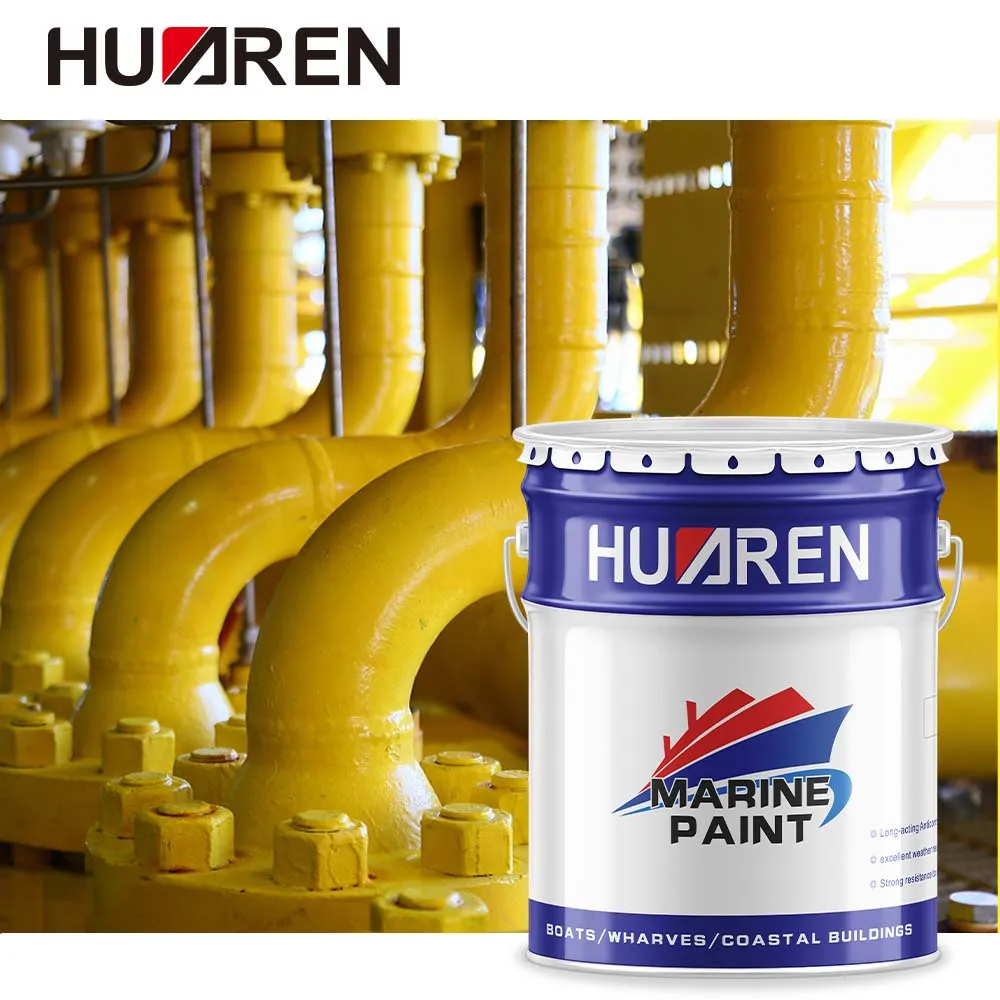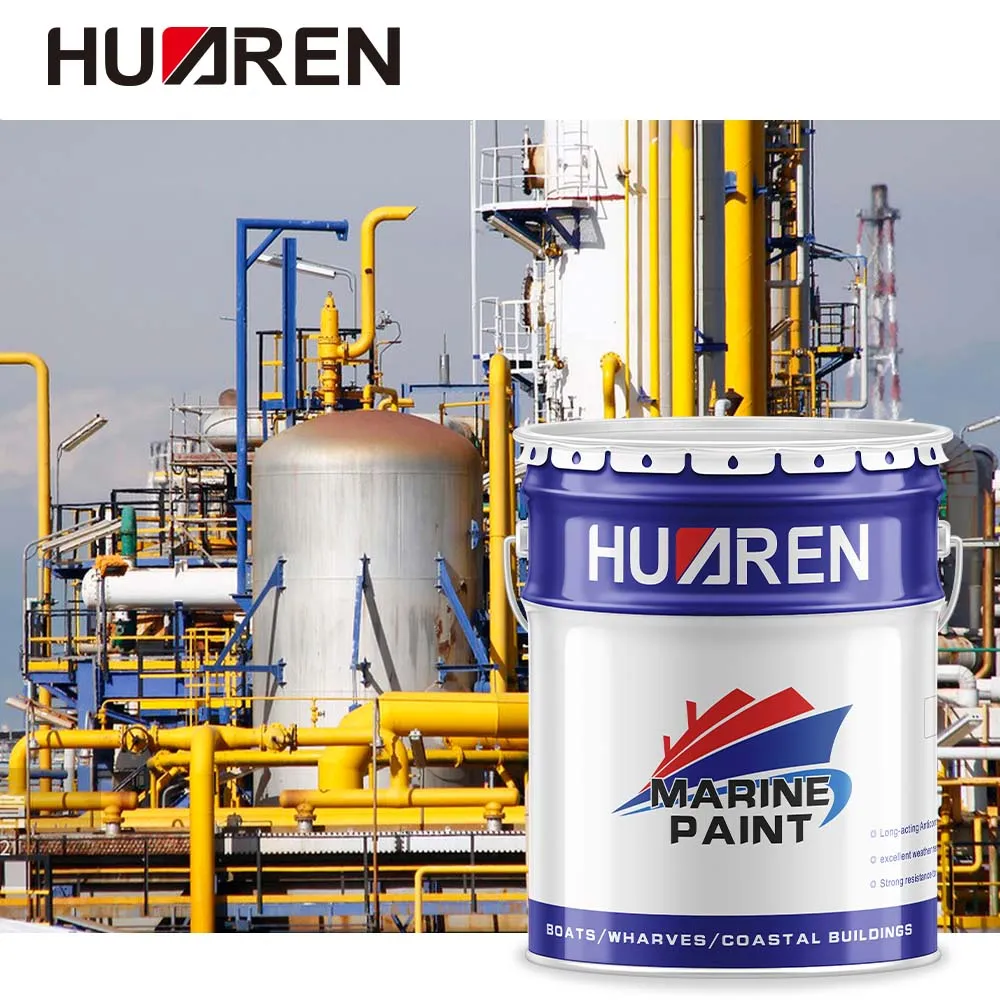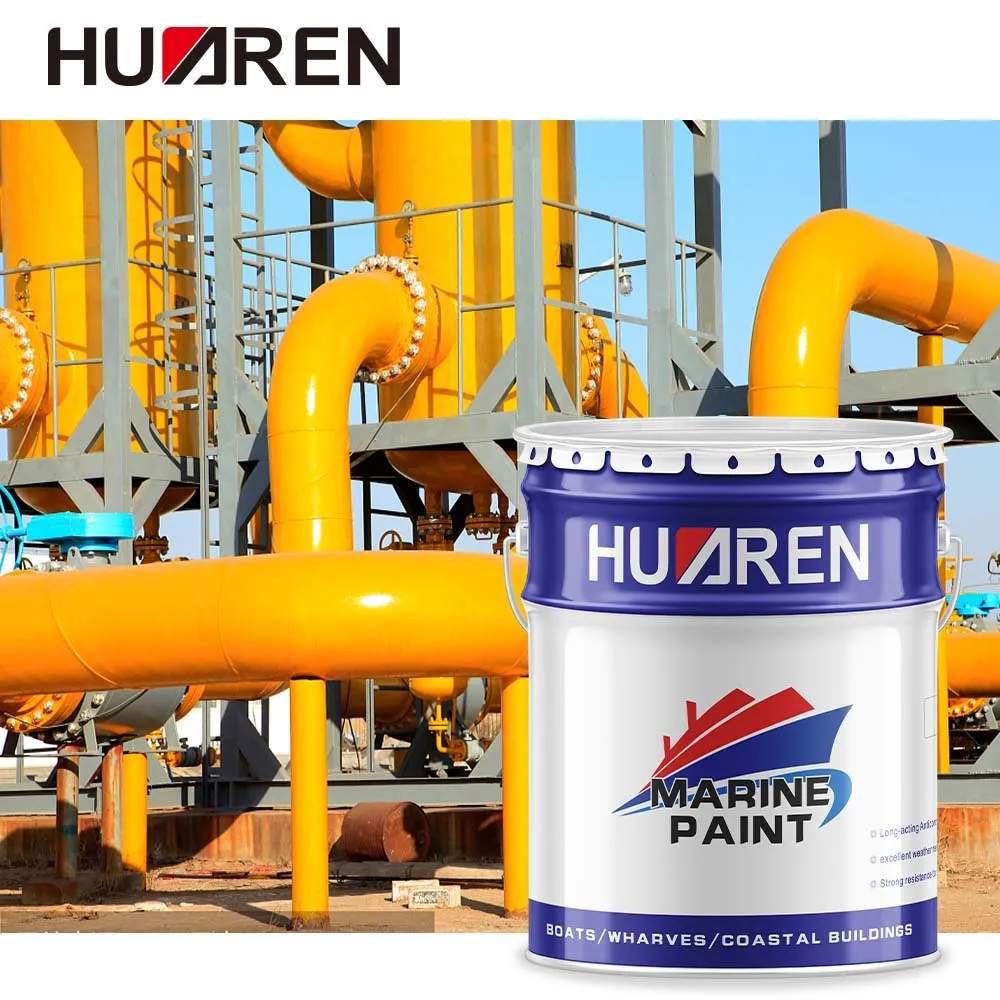Epoxy anticorrosion primer is a protective coating widely used on metal and concrete surfaces. With its excellent anticorrosion performance and outstanding adhesion, it has become an indispensable material in various engineering projects. Whether in heavy industry, marine engineering, or in the protection of metal structures in daily life, epoxy anticorrosion primer plays an important role.
This article will discuss in detail the definition, characteristics and application occasions of epoxy anticorrosion primer, and analyze under what circumstances epoxy anticorrosion primer should be preferred.

What is epoxy anticorrosion primer?
Epoxy anticorrosion primer is a primer with epoxy resin as the main component. Epoxy resin is a thermosetting polymer with extremely high adhesion, chemical stability and mechanical strength, which is widely used in anticorrosion, bonding, sealing and other fields. Epoxy anticorrosion primer is usually composed of epoxy resin, curing agent, pigment filler and additives. After being applied to the metal or concrete surface, the epoxy anticorrosion primer will react chemically with the curing agent to form a dense and strong coating, which effectively blocks the corrosion of the substrate by external corrosive substances.
What are the characteristics of epoxy anticorrosion primer?
Epoxy anticorrosion primer has extremely strong acid and alkali resistance, salt spray resistance and chemical corrosion resistance, and can maintain the integrity of the coating for a long time in harsh environments. Epoxy anticorrosion primer can also form good adhesion with the surfaces of various substrates, especially suitable for materials such as metal and concrete. Its adhesion comes not only from the mechanical locking effect of the coating film, but also from the chemical bonding between it and the substrate.
In addition, the coating formed after the epoxy anticorrosion primer is cured has high mechanical strength and wear resistance, and can resist external physical damage such as impact and friction. Although the weather resistance of epoxy anticorrosion primer is not as good as that of polyurethane coating, its weather resistance has been significantly improved after adding appropriate additives. Therefore, in some outdoor applications, epoxy anticorrosion primer can also be competent.
Epoxy anticorrosion primer can also be applied to a variety of substrate surfaces, including steel, stainless steel, aluminum, galvanized sheet, concrete, etc., and has a wide range of applicability.

In which cases should epoxy anticorrosion primer be used?
Epoxy anticorrosion primer is suitable for a variety of occasions and environments due to its excellent performance. Epoxy anticorrosion primer is particularly suitable in the following cases:
Highly corrosive environment
In an environment where corrosive substances are frequently in contact, metal and concrete structures are easily corroded. For example, chemical plants, oil refineries, sewage treatment plants, offshore platforms and other places all have high concentrations of acidic and alkaline gases or liquids, and ordinary coatings are difficult to resist the erosion of these corrosive media.
Epoxy anticorrosion primer can exert its excellent chemical corrosion resistance in these environments and provide long-term and effective protection for the substrate. In particular, zinc-containing epoxy zinc-rich primer, with its cathodic protection effect, can effectively prevent electrochemical corrosion on the metal surface, and is an irreplaceable protective coating in a highly corrosive environment.
Marine environment
The marine environment is a typical high-salt fog and high-humidity environment. Metal structures exposed to this environment are very susceptible to salt fog corrosion. Ships, offshore platforms, dock equipment and other facilities that need to be exposed to seawater or marine atmosphere for a long time have extremely high requirements for the anti-corrosion performance of coatings.
Epoxy anti-corrosion primer is widely used in marine engineering due to its excellent salt spray resistance. Whether it is used as an anti-rust primer for ships or as an anti-corrosion coating for offshore facilities, epoxy anti-corrosion primer can provide reliable protection and extend the service life of equipment.
Heavy industrial equipment
Heavy industrial equipment usually works in high temperature, high pressure, and complex chemical environments, such as oil drilling equipment, chemical storage tanks, metallurgical machinery, etc. These equipment not only require the coating to be able to resist severe chemical corrosion, but also need to have good heat resistance and mechanical strength.
The coating formed by epoxy anti-corrosion primer after curing is tough and wear-resistant, and can withstand physical stresses such as mechanical impact and friction. At the same time, it has the characteristics of chemical corrosion resistance and high temperature resistance. Therefore, it is an ideal choice for heavy industrial equipment coating.
Buried pipelines and storage tanks
Buried pipelines and storage tanks are buried in the soil for a long time, facing the threat of various corrosion factors such as moisture, acid and alkali substances, and microorganisms in the soil. Once corrosion occurs in pipelines and storage tanks, it will not only cause economic losses, but may also cause serious problems such as environmental pollution.
Epoxy anticorrosion primer can provide a good barrier to block corrosive media in the soil. Especially when used for coating the inner and outer walls of pipelines, epoxy anticorrosion primer can effectively prevent electrochemical corrosion and ensure the safe operation of pipelines and storage tanks.
Bridges and building steel structures
Bridges and building steel structures are usually exposed to the outdoors and are eroded by multiple factors such as wind, rain, ultraviolet rays, and pollutants. Especially in areas with severe industrial pollution, the surface of steel structures is easily corroded by acid rain, resulting in a decrease in structural strength and even causing safety accidents.
The corrosion resistance and adhesion of epoxy anticorrosion primer make it the first choice for painting bridges and building steel structures. Although the weather resistance of epoxy anticorrosion primer itself is not as good as that of polyurethane topcoat, long-term protection and aesthetic effects can be achieved through a reasonable coating system (such as epoxy primer + polyurethane topcoat).
Concrete protection
Although concrete structures are not prone to electrochemical corrosion like metals, they can also peel off and crack due to chemical erosion in some harsh environments (such as industrial wastewater pools, chemical storage tanks, etc.).
Epoxy anti-corrosion primers are often used for anti-corrosion protection of concrete surfaces due to their excellent adhesion and chemical resistance. Especially in industrial wastewater treatment facilities, epoxy anti-corrosion primers can effectively resist the erosion of acid and alkali substances and extend the service life of concrete structures.

What are the key points of epoxy anti-corrosion primer construction?
The protective effect of epoxy anti-corrosion primers not only depends on their own excellent performance, but is also closely related to the construction process. In order to ensure the anti-corrosion effect of epoxy anti-corrosion primers in practical applications, the following points should be noted during construction:
Substrate surface treatment
The cleanliness of the substrate surface directly affects the adhesion of epoxy anti-corrosion primers. Before construction, the metal or concrete surface should be thoroughly cleaned to remove impurities such as oil, rust, and old paint films. For steel structures, sandblasting or grinding is often used to make the surface reach a certain degree of roughness, thereby enhancing the adhesion of the coating.
Environmental condition control
The construction environment of epoxy anticorrosion primer has a great influence on the coating quality. It is usually required that the construction environment temperature is between 10°C and 35°C, and the relative humidity does not exceed 85%. Too low temperature will delay the curing time of epoxy paint, and too high humidity may cause blistering and failure of the coating. Therefore, the environmental conditions should be strictly controlled during the construction process.
Coating method and coating thickness
The coating method of epoxy anticorrosion primer can be brushed, sprayed or rolled according to the actual situation. Regardless of the method used, it should be ensured that the coating is uniform, without missing coating and sagging. For highly corrosive environments, multiple coats are recommended to increase the coating thickness and provide stronger protection.
Curing and maintenance
Epoxy anticorrosion primer takes a certain amount of time during the curing process, usually 24 to 48 hours. During the curing period, the coating should be protected from water, dust, chemicals, etc. to avoid affecting the coating quality. After curing, appropriate maintenance treatment should be carried out according to the needs of the use environment to ensure the long-term anticorrosion effect of the coating.

As a premier supplier of chemical products, Huaren Chemical Industry Co., Ltd. is committed to delivering high-quality paints and resins at competitive prices. Operating out of China, Huaren has been in the industry for more than 30 years and has built a reputation for exceptional quality and customer service. Our diverse product portfolio includes a wide range of industrial paints such as epoxy coatings, water-based industrial paints, and anti-corrosion solutions that are essential for industries like shipbuilding, petrochemicals, and construction. Looking to buy in bulk or wholesale? Huaren offers attractive discounts, promotions, and customized products tailored to your specific needs.

